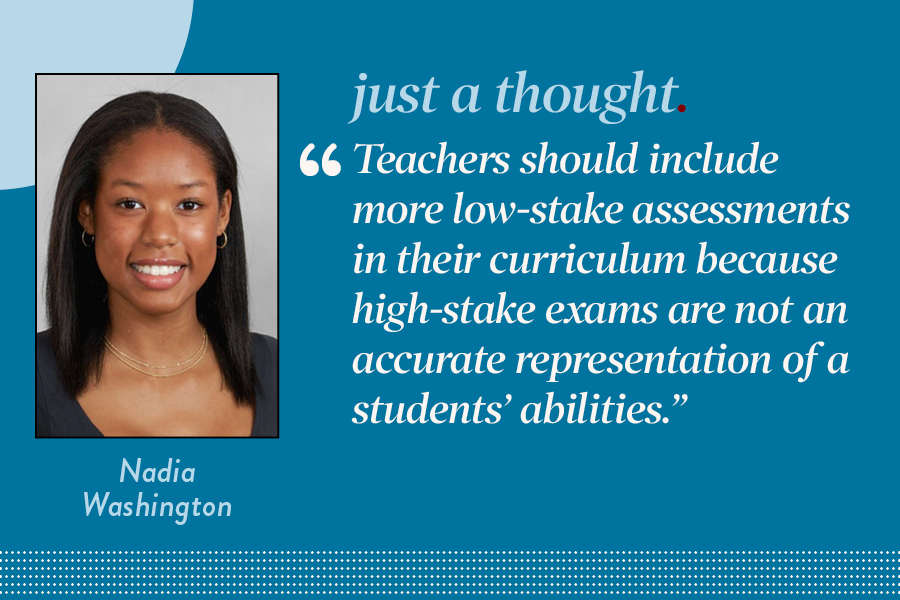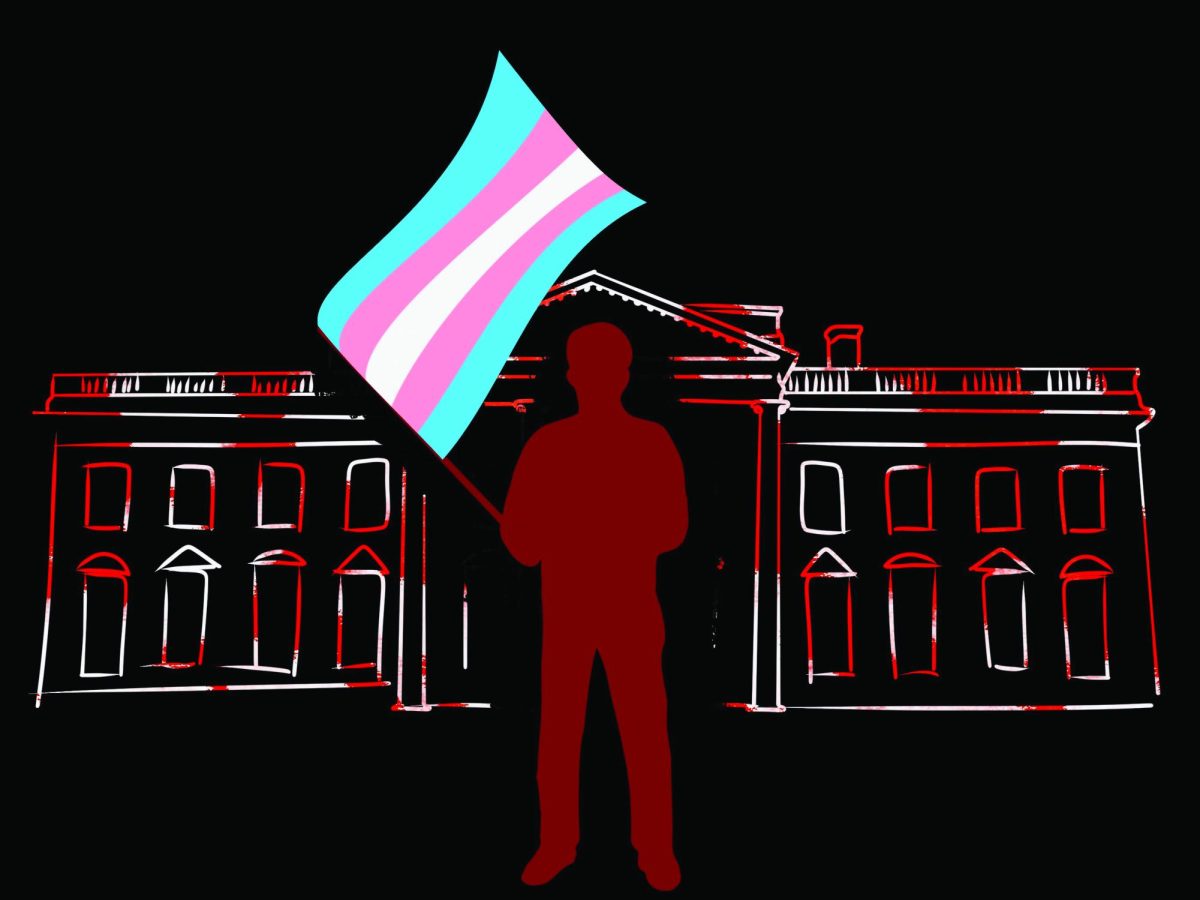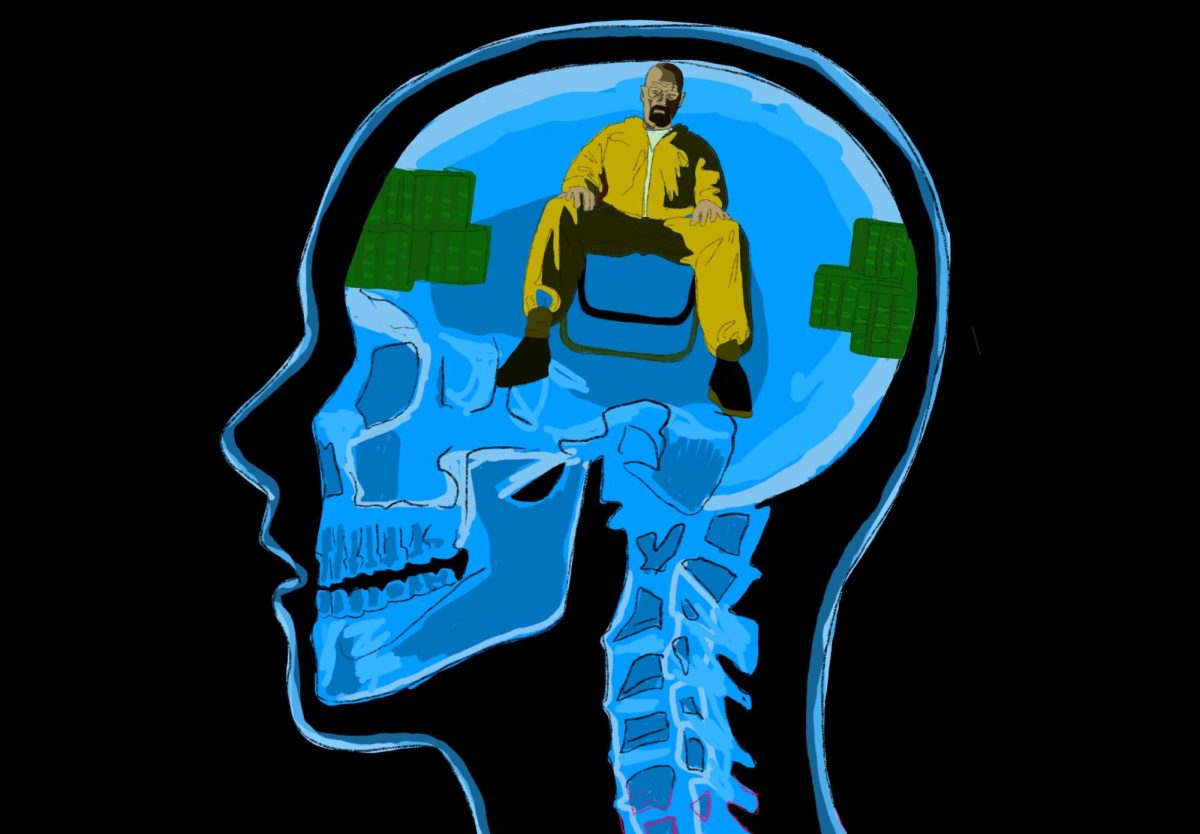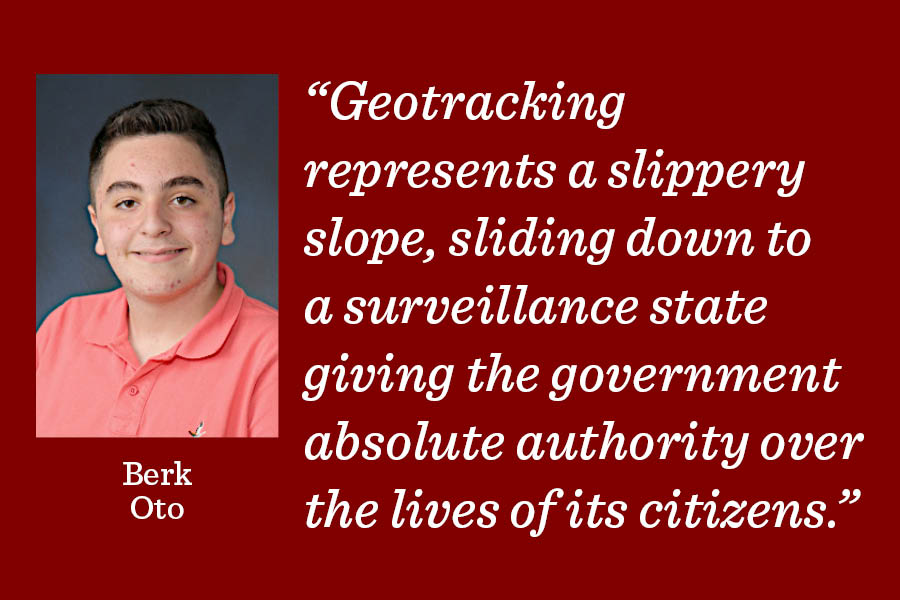Beware of the new ankle shackle
Americans should reject geotracking at its early stages, before its too late.
May 12, 2020
364 days in prison and a $2,500 fine is the maximum penalty an Illinoisian could get for aggravated assault. Right now citizens in South Korea, Israel and Singapore can get the same sentence — but just for shutting off their phone or going to a store further than their closest one. How? Under the guise of slowing the spread of the coronavirus, many countries are using smartphone geotracking technology to have constant control over their citizens. Apple and Google’s collaboration on a smartphone geotracking feature could lead to a similar fate for Americans.
To preserve their freedom and privacy, Americans should be cautious of opting into geotracking features that will increasingly be pushed on them in the coming years.
Countries that have implemented widespread citizen geotracking technology have seen better results on average in curbing the spread of the coronavirus. While this is true, many countries like Sweden and Germany similarly have been able to prevent their healthcare systems from being overwhelmed but without seizing the freedoms of its citizens.
Geotracking creates a virtual prison — restricting freedom of movement at the arbitrary whim of the government. It enables companies and governments to have an unprecedented level of control on behaviors they deem undesirable.
Despite efforts by Apple and Google to conceal the user’s identity and up-to-date location, these companies may still be forced to surrender user metadata in case of a government subpoena. The government already subpoenas DNA samples of millions of people from companies like Ancestry and 23andMe, and there’s nothing to stop them doing the same with location information. Widespread adoption of geotracking could eventually push Google and Apple to make metadata more accessible, allowing companies and governments to locate the up-to-date movements of individual people.
The United States government and corporations have a long history of administering unconstitutional and immoral control over Americans. Violations of the public trust from Japanese internment camps to lies about war on terror may initially seem as if they are in the public’s interest. The question in Singapore and South Korea is, does the tracking stop after quarantine ends? Or is the cellphone a new ankle shackle?
This is a question every country that adopts geotracking during the pandemic will eventually have to answer. Empirically, it’s not realistic for companies and governments to surrender their control once they have it.
Geotracking represents a slippery slope, sliding down to a surveillance state giving the government absolute authority over the lives of its citizens. It embodies the public’s fear of an all-knowing state which is enshrined in our pop culture and our Constitution. Geotracking is not only immoral, it’s downright un-American.
Americans should take the safest option and opt out from any features that give outside parties access to their personal metadata. Shutting off a phone, traveling to your store of choice and other completing everyday actions must not become crimes. The only way to prevent this is to show a united American front against geotracking from the beginning.


































































